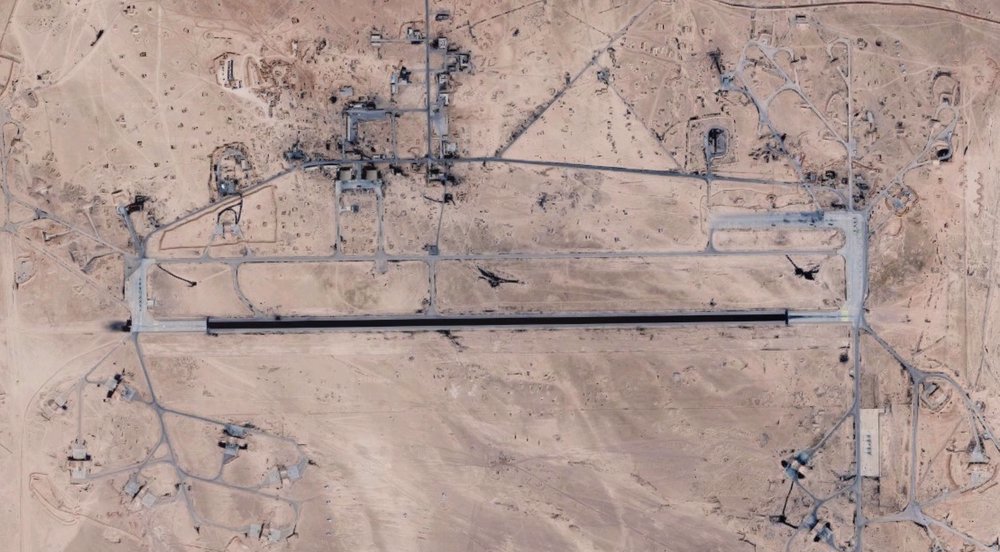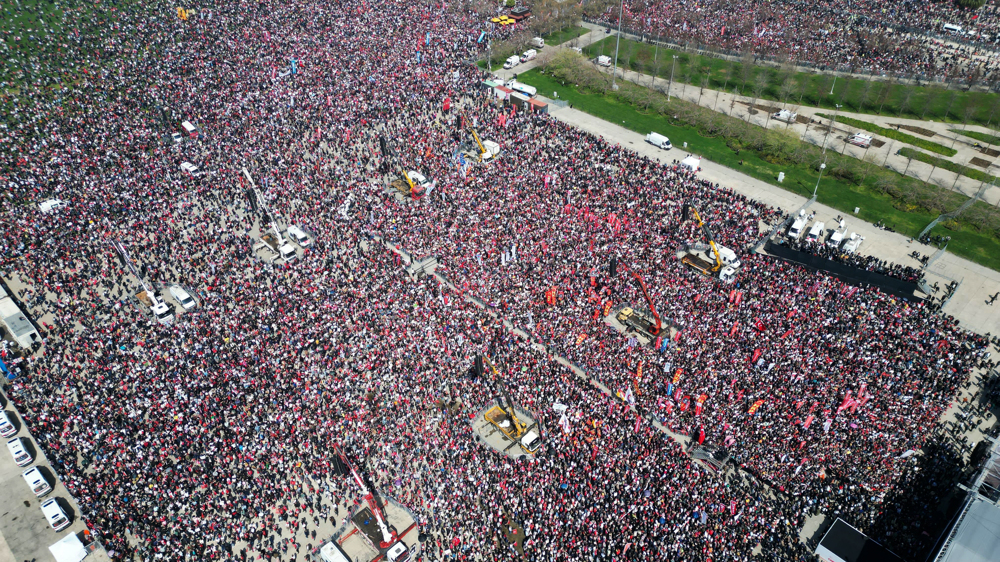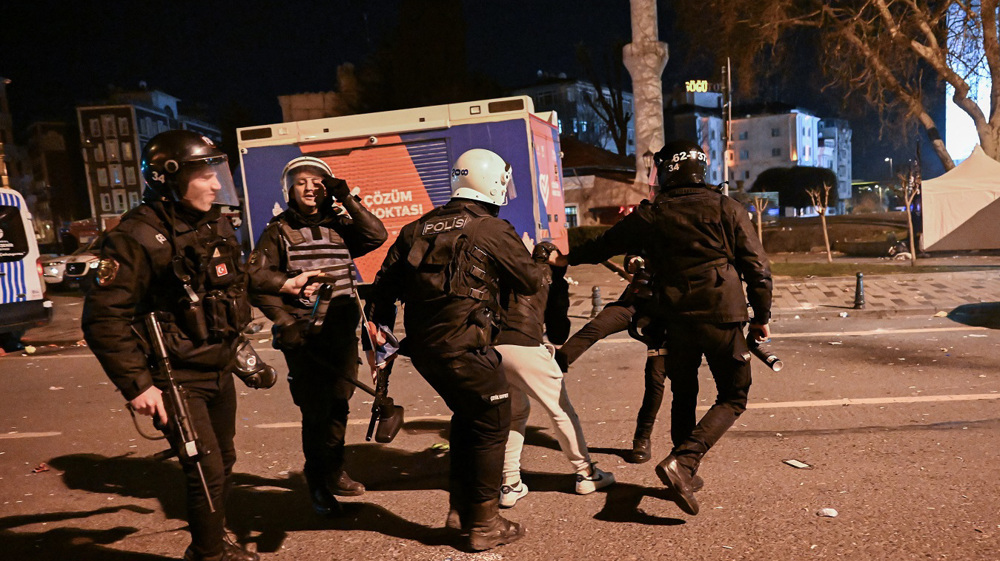EU slams Turkey for ‘extremely worrying’ arrest of academics
The European Union (EU) has censured Turkey for arresting a number of academics over signing a petition that criticized Ankara for its campaign against the Kurdistan Workers’ Party (PKK).
An EU spokesperson on foreign affairs described in a Saturday statement the move against the Turkish academics as “an extremely worrying development.”
“They are no longer detained, but the procedures against them are ongoing,” the EU statement added.
It was released a day after Turkish police detained at least 18 academics over the petition, in a move that raised new concerns about freedom of expression in Turkey.
The arrests were part of raids that targeted 21 academics who were accused of disseminating “terrorist propaganda” by signing the petition.
According to Turkish media, 15 of the detained academics and lecturers were from the University of Kocaeli, near the city of Istanbul. Three other academics were from Uludag University in the western province of Bursa who were held in their offices.
The academicians were said to have been questioned for a day before being released.
While strongly condemning all kinds of terror attacks, including those carried out by the PKK, the EU spokesman said “the fight against terrorism must fully respect obligations under international law, including human rights and humanitarian law.”
“Freedom of expression must be upheld, in line with the Copenhagen political criteria; an intimidating climate goes against this.”
On January 14, authorities in Turkey started an investigation into more than 1,200 academics accused of engaging in “terrorist propaganda” and “inciting hatred and enmity” by signing the petition, which was entitled, We won’t be a party to this crime, referring to the campaign in southeastern Turkey.
They urged the Turkish government to stop ‘its deliberate massacres and deportation of Kurdish and other peoples in the region,” in a move that angered Ankara.
Amnesty’s reaction to arrests
Amnesty International, meanwhile, denounced the mass detentions as a new attack on the right to freedom of expression in Turkey.
“The military operations taking place under round-the-clock curfews are generating huge suffering and widespread human rights violations. The Turkish authorities should be listening to those that are speaking out, not arresting them,” said Andrew Gardner, Amnesty’s Turkey researcher.

The academics’ detention and harassment is an “ominous marker of the precarious state of human rights” in Turkey, Amnesty said, adding that they are entitled to exercise their right to freedom of expression “without being branded as terrorists and menaced with arrest.”
Turkish President Recep Tayyip Erdogan in a Friday speech called the academics the “darkest of the dark,” and accused them of committing the same crime as those who carry out the massacres.
He had earlier slammed the petition as a “betrayal” and referred to the academics as “a fifth column” for terrorists.
“These detentions, coupled with President Erdogan’s remarks, suggest that the crackdown in the Kurdish southeast is being extended to anyone who dares criticize government operations,” Amnesty said.
Violence erupted between the PKK militant group and the Turkish army last July and shattered a fragile two-and-a-half-year ceasefire between the two sides.
The Human Rights Foundation of Turkey said recently that as many as 162 civilians have been killed in the restive region, which has been under a government-imposed curfew since August 2015.
The PKK launched its militancy against Turkey in 1984. So far, more than 40,000 people have been killed in the conflict.

Turkey readies plans to take over Syria’s T4 airbase: Report

Hundreds of thousands rally in Istanbul to call for release of jailed mayor

Over 1,400 arrested as protests continue in Turkey despite ban
US bans Arab states from supporting Lebanon, Syria reconstruction: Report
Hamas, PA laud France’s plan to recognize Palestinian state
Iran ‘giving diplomacy a genuine chance’ with Oman talks
US says can deport people for beliefs as students expelled
VIDEO | Spain’s Cordoba hosts Conference against Israeli media manipulation in Gaza war
Residential buildings, farms hit in new US strikes on Yemeni capital
VIDEO | Press TV's news headlines
VIDEO | BRICS+ Association of Cities, Municipalities held in Tehran












 This makes it easy to access the Press TV website
This makes it easy to access the Press TV website